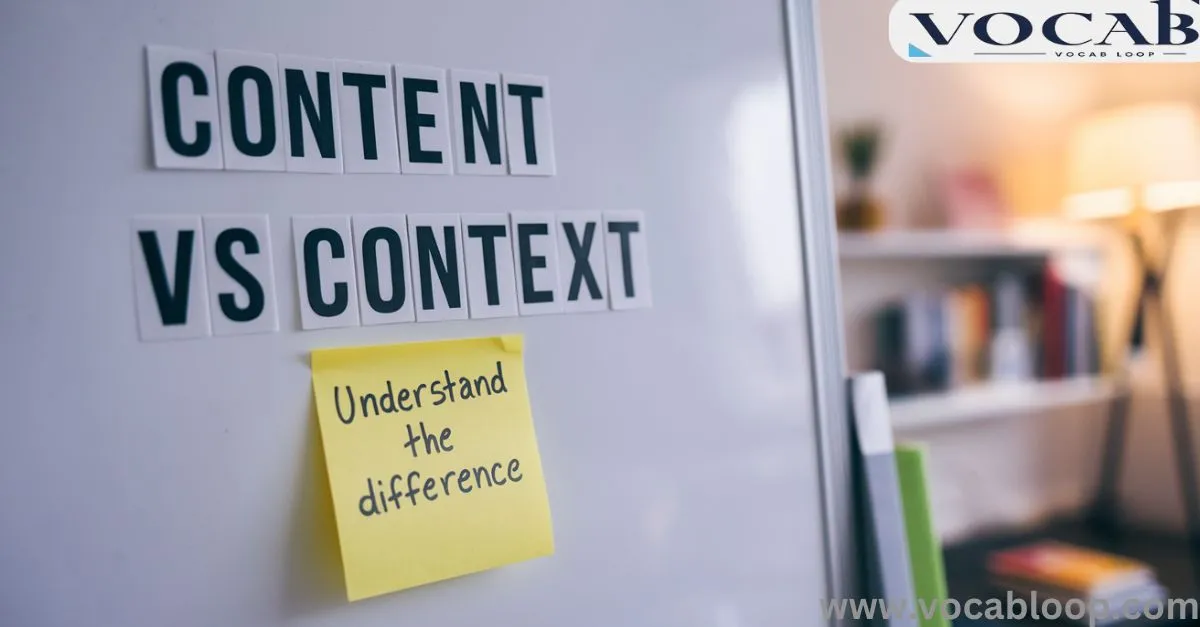Content vs Context can unlock deeper, more meaningful conversations and improve overall communication. Content is the information or substance of what’s being discussed, while context surrounds this content, shaping its interpretation and influencing how it’s understood.
Recognizing both aspects helps in refining how we communicate and how we perceive messages from others. In the journey to becoming a conscious leader, the focus on both content and context is essential, especially when aiming to build healthy, productive conversations.
Why is There Confusion?
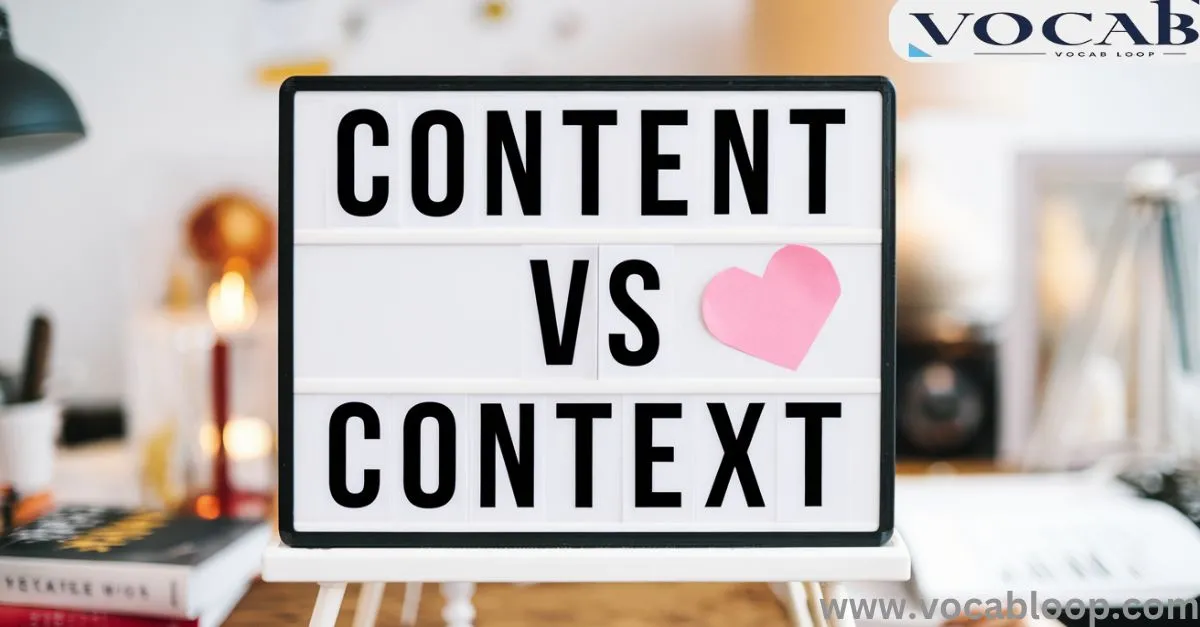
Many people struggle to distinguish between content and context because they often appear side by side in discussions and decisions. For example, in leadership, it’s not just about what message is being delivered (the content).But also about the conditions under which it’s shared, the listener’s state of mind, and the atmosphere in the room (the context).
This blend creates a conversational context that’s easy to misinterpret if one doesn’t consider both elements.Confusion arises because content and context are interdependent. The role of context becomes especially significant in effective dialogue. A statement’s content can change dramatically depending on the circumstances surrounding it.
What is Content?

Is the Content Word Correct?
The term “content” refers to the material or information conveyed in communication. It’s what we read in a book, hear in a speech, or write in an email.
In leadership, understanding content means focusing on the message’s meaning and significance. The content must be clear and aligned with the speaker’s purpose, whether in an official report, a personal conversation, or a productive discussion.
Definition
Content is defined as the ideas, information, or material contained within a piece of communication. It could be the story in a book, the facts in an article, or the agenda in a meeting.
Content is the substance, while the context influences how that substance is perceived. For conscious leaders, the importance of content lies in its clarity, relevance, and ability to convey a message without distortion.
Meaning
The meaning of content extends beyond just the words used; it includes the intended message and the goals of communication. In leadership, creating valuable content is essential for conveying clear messages and guiding discussions.
Leaders use content to direct focus, inspire action, or explain processes. Content analysis can reveal strengths and weaknesses in communication, showing where adjustments may be needed to create positive behavior.
What is Context?
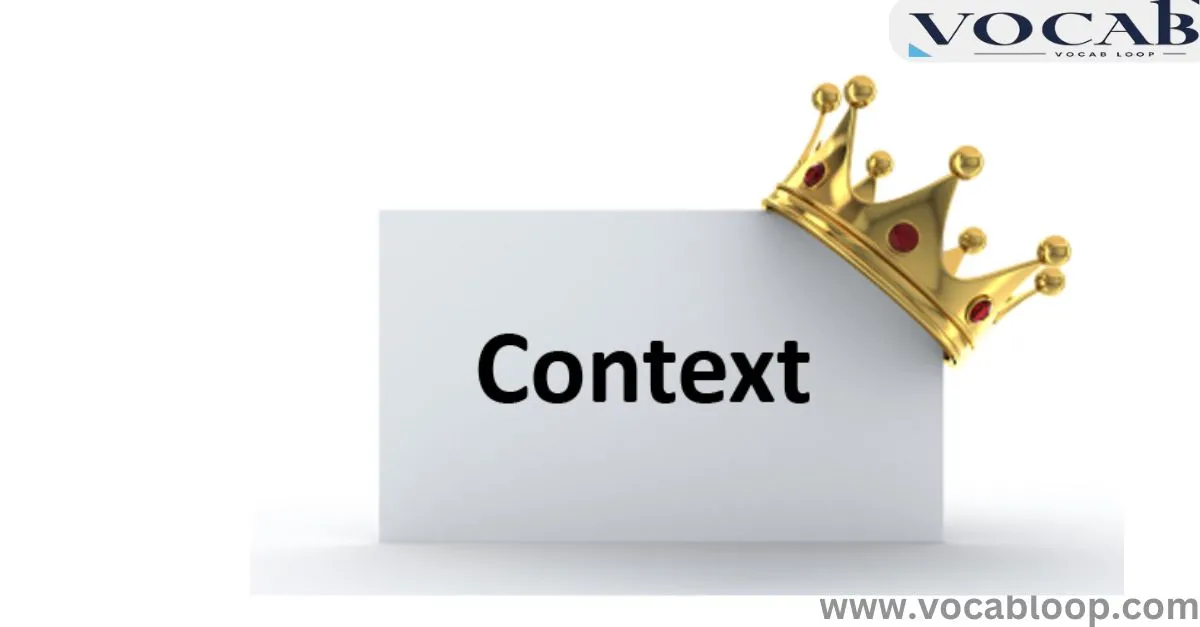
Is the Context Word Correct?
The word “context” is correct when discussing the circumstances or background surrounding a piece of information. Context offers insight into what influences a message and why it’s delivered in a specific way.
In communication, especially for conscious leaders, contextual focus is essential for understanding how and why a conversation is happening. A message’s effectiveness depends heavily on the context in which it’s delivered.
Definition
Context is the surrounding information or environment in which content is delivered. This includes factors like the time, place, cultural setting, and emotional undertones.
Without context, content can seem disconnected or misleading. In a leadership setting, the significance of context cannot be overstated; it provides a foundation for interpreting messages accurately.
Meaning
The broader meaning of context lies in its power to shape how information is received and understood. Leaders with a context emphasis pay attention to the conditions influencing a conversation, which helps create engaging conversations and meaningful interactions.
Understanding context helps in interpreting the nuances of a discussion, making it a crucial skill for those aiming to communicate effectively.
Quick Summary: Content vs Context
Content is what’s being communicated the main ideas, facts, and information while context is the environment that surrounds this content. Contextual awareness allows leaders to gauge the factors that might influence interpretation.
For instance, the same words can be supportive or dismissive depending on the tone, timing, and delivery. Knowing both content and context leads to more conscious behavior and more effective communication.
Content vs Context Parts of Speech
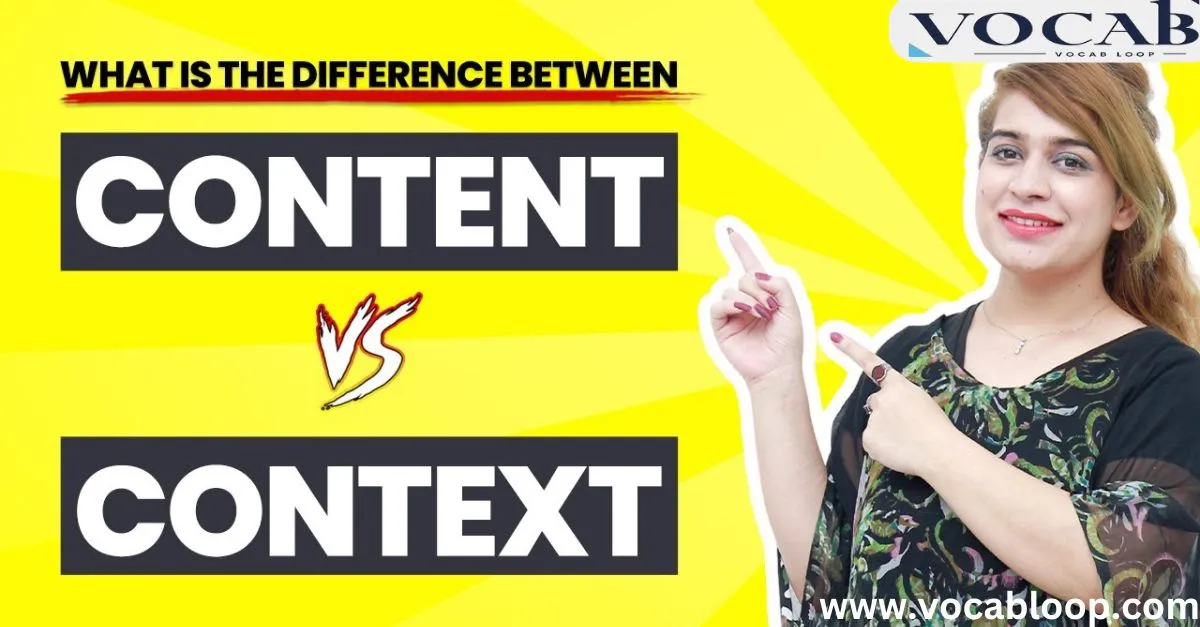
Both content and context are commonly used as nouns, but they play unique roles in language and communication. “Content” usually refers to the tangible aspects of a message, like information, data, or facts.
Context refers to the setting or surrounding factors that influence how this information is interpreted. This distinction in parts of speech helps clarify their functions in conversation and written communication, particularly in leadership contexts.
Pronunciation of Content vs Context
“Content” and “context” have distinct pronunciations, though both are two-syllable words. Content is pronounced as KON-tent when used as a noun, with emphasis on the first syllable.
Context, on the other hand, is pronounced as KON-tekst, also with emphasis on the first syllable. Understanding the pronunciation helps ensure clear communication and minimizes misunderstandings.
Side-by-Side Comparison: Content vs Context
| Aspect | Content | Context |
| Definition | The material or subject of communication | The surrounding factors of communication |
| Example | A report, story, or message | Cultural background, mood, or setting |
| Role | Provides information | Shapes interpretation |
| Importance | Conveys the core message | Influences understanding |
Which One is More Acceptable: Content vs Context?
Content might initially seem more important, as it delivers the actual information. However, context often holds equal or greater value in understanding the message.
Attention to context provides depth, ensuring that conversational differences are respected and understood. Leaders should note that neither term is more “acceptable” than the other; both are crucial for effective dialogue.
Trick to Remember the Difference: Content vs Context
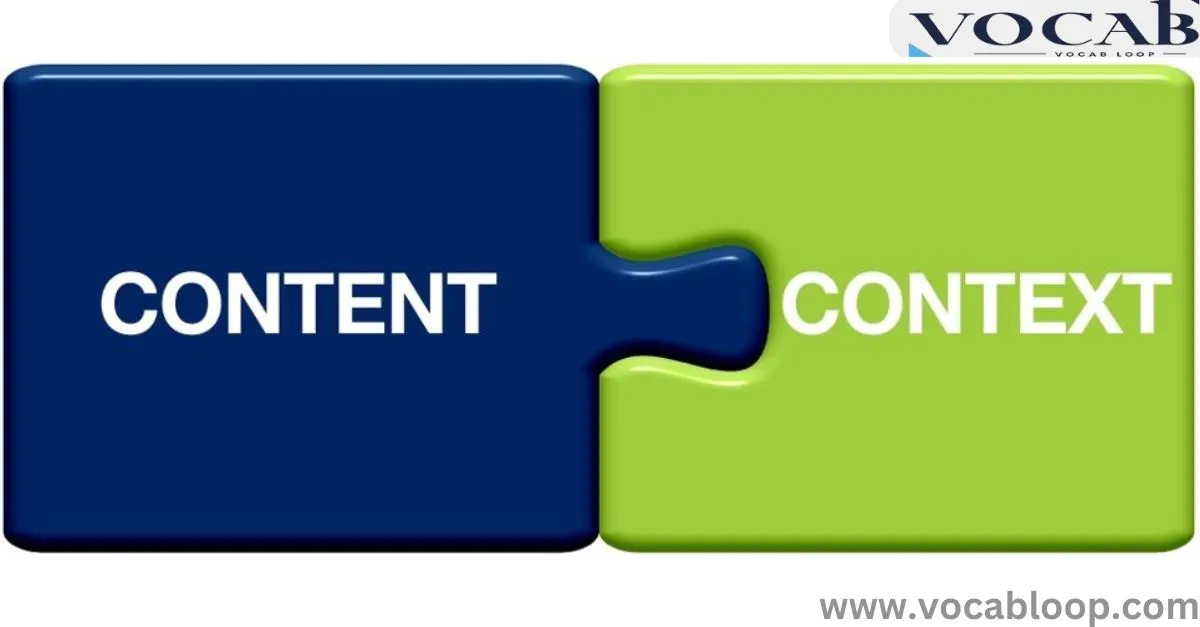
To remember the difference between content and context, think of content as what you’re discussing and context as the situation around it. One helpful mnemonic is “Content is contained; Context surrounds.”
This reminder emphasizes that while content holds information, context adds meaning.
Origins of Content vs Context
Content
The word content originates from Latin “contentus,” meaning “contained.” Historically, it has evolved to mean the material within a container or form, such as a book, speech, or conversation.
Context
Context comes from the Latin “contextus,” which means “to weave together.” This reflects how context combines with content to create understanding.
Synonyms of Content vs Context
Content
- Material
- Substance
- Information
- Subject matter
- Message
- Text
- Data
- Details
- Essence
- Core
Context
- Background
- Framework
- Setting
- Circumstances
- Surroundings
- Environment
- Situation
- Conditions
- Perspective
- Atmosphere
Everyday Usage Examples
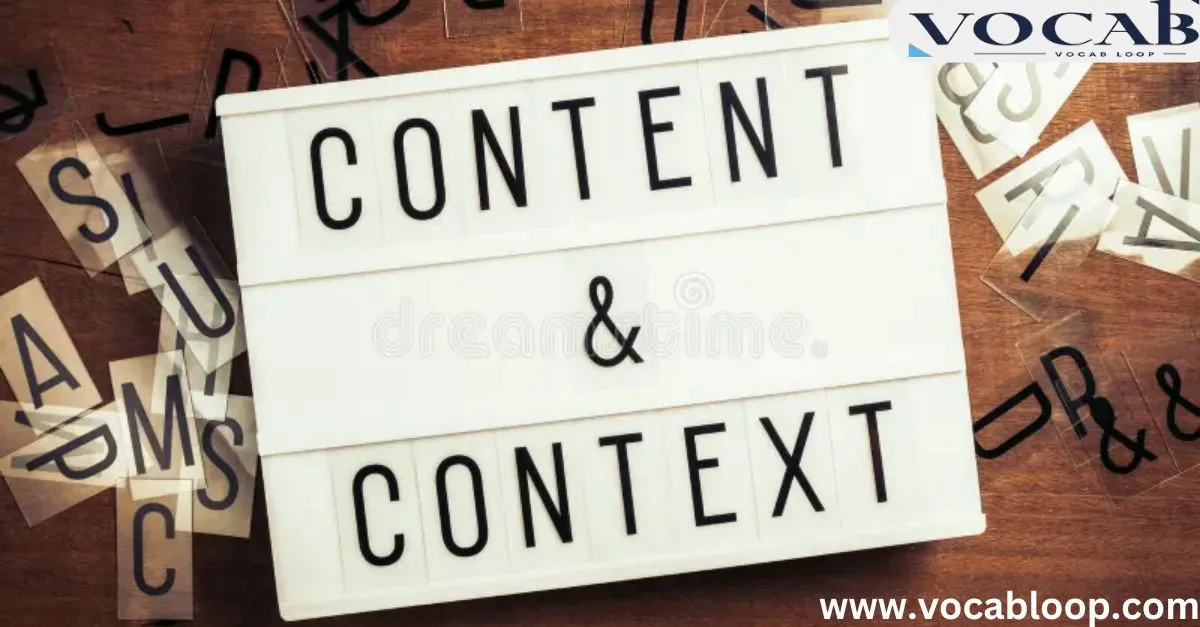
Content Examples
- The content of his speech was inspiring.
- She found the content online and shared it with the team.
- Their project’s content was unique.
- What is the content of this presentation?
- His article’s content was well-researched.
- Teachers often tailor content to meet students’ needs.
- The content needs to be more engaging.
- They posted interesting content daily.
- Her talk’s content was relevant to modern issues.
- Let’s review the content for accuracy.
Context Examples
- In this context, her joke was misunderstood.
- His words seemed harsh out of context.
- The cultural context of the story is vital.
- It’s essential to understand the context of that statement.
- The context gave her words more weight.
- Without context, it sounds rude.
- They discussed the issue in the context of history.
- This decision needs to be viewed in the right context.
- Social context influenced his behavior.
- Let’s discuss this in context.
FAQs
What is the main difference between content and context?
Content is the information being shared, while context is the background or setting that shapes its interpretation.
Why is context important in conversations?
Context provides depth and helps listeners understand the meaning behind the content, reducing misunderstandings.
Can content exist without context?
Content can exist, but without context, its meaning might not be clear or fully understood.
How do conscious leaders use context effectively?
Leaders use context to frame conversations, creating clarity and promoting effective communication.
How can I become better at recognizing context in communication?
Practice active listening, ask questions, and consider the environment and emotions surrounding a conversation.
Conclusion
Content vs context is essential for effective communication, especially for leaders striving to create productive discussions and meaningful interactions. While content is the core of any message, context gives it shape, helping audiences interpret its meaning accurately.
The importance of context in communication cannot be overstated, as it allows for more engaging conversations and supports a conscious leadership journey focused on open, respectful, and thoughtful exchanges.

Alex Hormozi is a seasoned blogger at Vocab Loop, known for his deep insights into language, vocabulary, and grammar. With years of experience in writing, Alex shares practical tips and effective strategies to help readers improve their linguistic skills and enhance their writing abilities.

